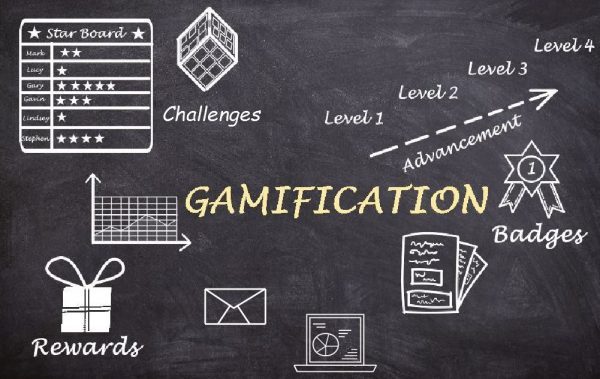Using research-based methods aligned with CA-CCSS and the California ELA/ELD framework, candidates will learn to teach content-based language/literacy instruction for English speakers, English learners, Standard English learners, and students with disabilities and other learning needs in order to support /sustain academic achievement for all learners in settings covered by the authorization.
Course Learning Outcomes
- CLO 1: Utilize research-based strategies aligned with California’s Common Core Standards, academic content standards, and ELA/ELD framework needed to effectively teach reading, writing, listening, speaking, and language for all learners, including English speakers, English learners, Standard English learners, students with exceptionalities, students with other learning needs, and with varying stages of literacy/language proficiency.
- CLO 2: Integrate into an appropriate content area of instruction the knowledge and applicability of the major components of evidence-based literacy (reading, writing, speaking, and listening) with an emphasis on making content comprehensible for all learners and building vocabulary, comprehension and academic achievement.
- CLO 3: Analyze multiple forms of assessments needed to address the range of language and literacy needs of all learners within the appropriate content area.
- CLO 4: Design instruction analyzing cognitive challenge(s), language and literacy demand(s) of content area targets and concepts, and technology within disciplinary and cross-disciplinary learning sequences needed to promote language and literacy proficiency for variety of purposes, tasks, audiences and disciplines.
- CLO 5: Utilize text and digitally based resources offering multiple linguistic and culturally inclusive perspectives needed to provide equitable access to content-area curriculum and to support the literacy and language development of all learners, including those who have experienced poverty, interrupted schooling, long-term ELLs, chronic migration, trauma, homelessness, foster care, incarceration and/or are medically/ emotionally fragile as well as students with exceptionalities and students with other learning needs.
- CLO 6: Design comprehensive content-based instruction based on the Learning Map Design, principles of Universal Design for Learning (UDL), and a multiple-tiered system of support (MTSS) needed to address the language and literacy needs within and across content areas for all learners.
Course Requirements:
This is a content-based course that leads to a variety of practical applications. Students are expected to complete all assigned readings and review all the information in the Content section before entering the Discussion Boards and completing the assignments. The Content Presentation sections provide pertinent, current information and are part of the required activities for each week.
The course contains various assignments which directly relate to your teaching in a secondary classroom and are described detail below and explained in detail in the course itself.
Snapshot Overview of ITL 520
Each week scaffolds you into understanding academic language and literacy in a content area classroom. ITL 520 will set you up for creating student-centered content-literacy learning experiences for your students. Engagement and relevancy are key in literacy experiences – because students should be able to see themselves in the literature they are interacting with!
Stretch your mindset to make connections to everything you are learning, do not view them in silos as they all intersect! Here is what our month ahead will look like!
Week 1: Introduction to Content-Literacy
Teaching Exemplars, Content- Literacy Standards, Content-Literacy Assessments
By observing teaching exemplars in content literacy, designing content-literacy standards and developing content-literacy assessments, you will be focusing on the TPE elements of Meaning Making, Content Knowledge, Language Development and Foundational Skills.
CONNECT! Keep in mind what you learn about content-literacy standards and assessments as you begin Week Two and make connections to the Week Two content!
Week 2: Funds of Knowledge
Equity Literacy, Digital Literacy, Vocabulary Development in Content Area Classrooms
CONNECT! Keep in mind what you learn about equity literacy and digital literacy and how they intersect with what you know about content-literacy standards and assessments, and take these intersections forward into next week.
Week 3: Inclusive Literacy Practices
Complex & Diverse Text Sets, Metacognition, High Quality Literature in Content Area Classrooms
Your design of content-literacy experiences that include diverse and complex texts, and metacognition will support your focus on the TPE elements of Effective Expression, Meaning Making and Foundational Skills.
CONNECT! Think about the ways in which complex texts, metacognition and high quality literature intersect with what you learned about equitable literacy practices and vocabulary development, and take these intersections forward into next week.
Week 4: Individualization & Reflection
Intervention, Accessibility, Engagement, UDL in Content-Literacy Classrooms,
Now, you will use all content from Weeks One through Three to help inform your design of an individualized intervention plan and a reflection on your instruction last week.
The connections you made in ITL 520 are your foundation moving into ITL 522! You will continue to build your knowledge and skills as you have designed: a robust learning map, inclusive assessments, vocabulary strategies, high quality literature interactions and intervention plans. As you move into ITL 522, you will shift to thinking about content-based instruction based on language proficiency and literacy needs.
Reflective Discussion Posts:
Rationale of using video reflection as a medium: As a teacher you need to get comfortable with having others watch you teach as well as watching yourself teach. Teachers in the 21st Century do not teach in a silo with their door closed, inclusive classrooms include co-teaching, intervention specialists, and many other support roles who will be in your classroom. Gaining confidence presenting in front of others is an important aspect of teaching. Also, in order to pass the CalTPA you will be recoding yourself teaching and will have to annotate your instruction. ITL will scaffold your ability to present in front of others as well as how to deeply reflect. The CalTPA will not judge you on your APA, but it does require you to be able to reflect in writing on your teaching: planning, instruction, assessment, and reflection!
Course Assignments and Method of Assessment/Evaluation:
- Threaded Discussion Board Postings
The threaded discussions ask you to apply what you have been reading and viewing in the required videos. You will be presented to several prompts each week and also to respond to your colleagues. Further details regarding each week are contained in the course itself.
- Synchronous Session Guidelines
Zoom synchronous sessions will be held weekly in this course. We encourage you to attend in person since that will provide you with an opportunity to interact with the instructor and your fellow students and ask all the questions which you have about the course, the text, the assignments, and the topics under discussion. If you cannot attend in person, each session will be recorded and you can listen to the archived SS recording for the week.
Following is a brief description of the weekly assignments. Further details regarding each of the assignments are contained in the course itself.
- Learning Map Assignment Introduction – Week 1 Assignment 1
Designing instructional experiences for students that are inclusive, engaging and effective takes thoughtful planning, adjusting and reflecting on the part of the teacher. This week you will design a Learning Map focusing on stage 1.
- Assessment Assignment – Week 1 Assignment 2
For this assignment you will think critically about assessments and instructional literacy experiences. You will be identifying formative assessments, summative assessments, uncommon assessments and reflecting on how these assessments would work within the classroom.
- Learning Map Assignment – Student Assets, Content/Activities, Assessments – Week 2 Assignment 1
For this assignment you will continue work on your learning map, writing about your students’ assets, the content/activities of your lesson and some of your assessment ideas.
- Vocabulary Assignment – Week 2 Assignment 2
In this assignment you will create and build a vocabulary learning activity for your content area.
- Teaching Your Learning Map – Week 3 Assignment 1
This week you are teaching, spending time analyzing prior knowledge of the part of your students. You will develop your instructional strategies to carry out your lesson and will have an opportunity after teaching to think critically about how the students did in relation to the learning outcomes that you planned.
- Formative Assessments and Instructional Activities Assignment – Week 3 Assignment 2
For this assignment you will research and identify an article that is challenging and that connects to a topic you are teaching in your content area class and then design an engaging instructional activities related to your chosen article.
- Reflecting on Learning Map Assignment – Week 4 Assignment 1
You have taught your lesson and gathered data from your students. For this assignment you will reflect on what you learned from your instruction, what you will do to strengthen and extend deep content learning and academic language, and what you will do to design targeted adaptations for your class that creates a safe, inclusive and positive learning environment for each student in the classroom.
- Differentiating Learning Experiences Assignment – Week 4 Assignment 2
When a student does not grasp a concept when first introduced, content area literacy teachers need to cultivate the ability to differentiate and individualize learning experiences for specific students. In this assignment you will design an intervention plan or new learning experience for a focus student.
Alternative to Fieldwork Assignment #7 – Teaching your Learning Map
If you do not have your own classroom in which to teach your Learning Map or if you are restricted by external factors from teaching in a classroom (such as COVID restrictions), here are some alternative options for conducting this fieldwork assignment:
- Conduct your lesson to a class via Zoom.
- Conduct your lesson to a group of your colleagues “functioning” as a class via Zoom
- Conduct your lesson to a “pretend” class.



